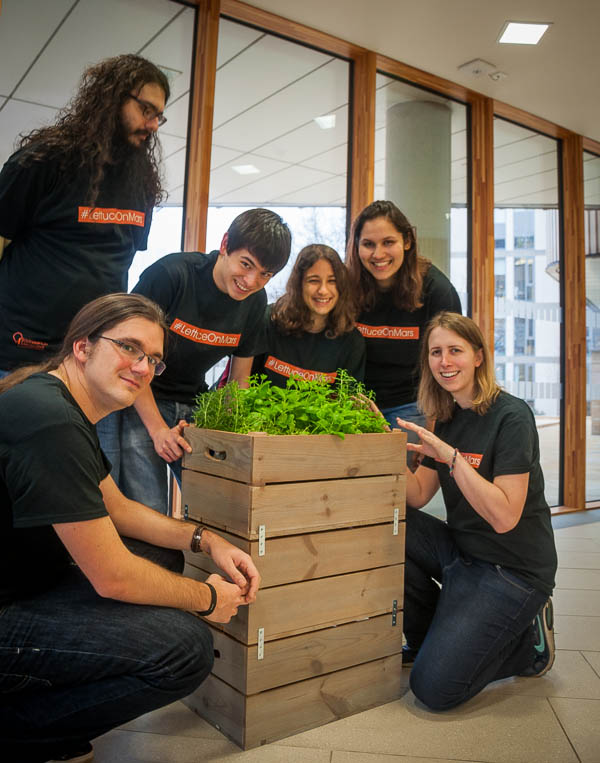An experiment to grow lettuce on Mars is looking like a real possibility. University of Southampton students intend to bring a small pressurised greenhouse utilising an aeroponic system to Mars.
An international competition to the once in a lifetime opportunity to fly on Mars One’s first unmanned Lander mission to Mars in 2018 has reached the finals and The University of Southampton bid is the only shortlisted UK entry in the contest.
The student project by Mars One is planning to establish a settlement on the Red Planet.
The winner will be decided by a public vote. Voting is open now and closes on 31 December 2014.
The winning experiment will land on Mars on an unmanned craft in 2018.
Southampton project leader Suzanna Lucarotti said:
“To live on other planets we need to grow food there. No-one has ever actually done this and we intend to be the first.
“This plan is both technically feasible and incredibly ambitious in its scope, for we will be bringing the first complex life to another planet.
“Growing plants on other planets is something that needs to be done, and will lead to a wealth of research and industrial opportunities that our plan aims to bring to the University of Southampton.
“We have tackled diverse sets of engineering challenges… We can build this here and now, the only step now is to win the public vote.”
The goal of the Southampton project is to send a small greenhouse to Mars in which lettuce will be grown using the atmosphere and sunlight on Mars.

The team: Suzanna Lucarotti, Janki Shah, Bárbara Gonçalves, Alex Davey, Máté Ravasz, Hector Hamilton, Annabelle Damerum (Not in photo). Photo Credit: http://www.lettuceonmars.com/
According to the team:
“Our objective is to demonstrate the ability to grow small plants with gases obtained from the Martian atmosphere, with a minimum of material imported from Earth. Proving that plant life can thrive in the controlled greenhouse environment and that the resources within can be appropriately managed is an important step towards demonstrating that a human colony will also be able to survive.”
“Carbon Dioxide will be heated and pressurised from the Martian atmosphere. Oxygen will be produced by electrolysis of water brought from Earth. Some water with dissolved nutrients will be vaporised in the growth chamber.”
Researchers expect that it will take up to a month before the lettuce grows and photographs taken by the camera inside the growth chamber will be transmitted back every day along with sensor data. After completion heaters will be activated to exterminate all life in the payload as a means of preventing potential contamination.
Mars One is a not-for-profit foundation that aims to establish a permanent human settlement on Mars.

